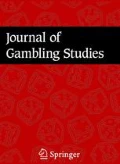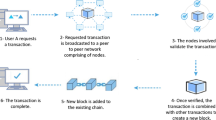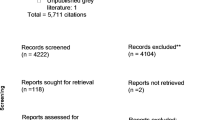Abstract
Gambling has had mixed reactions over the years as a positive economic activity and as a negative action that leads to addiction. The purpose of the study is to examine whether the level of income and nature of employment explain the actual instant gratification behavior among bettors in Uganda. This study adopted a cross-sectional quantitative research design. Data was collected from 257 bettors in 26 betting firms, and a census survey was found appropriate to achieve a response rate of 98%. The research findings indicate that low-income earners are more likely to engage in sports betting. Secondly, individuals with jobs where they have too much free time and inadequate supervision are most likely to participate in sports betting. We, therefore, recommend that both private and public organizations should be concerned about the impact of sports betting on their performance and employees. Most entities don’t have gambling policies, and sports betting has a negative impact, for example, in terms of labor productivity and well-being of the employees; hence organizations need to develop clear anti-gambling policies at the workplace. Our study finds that the youth are the most gambling group in the country; specific gambling pieces of training and support services should be developed and organized for the child to increase the awareness of the impact of sports betting on their lives. Finally, there is a need to improve on the saving culture of Ugandans in addition to the revision of the minimum wage level for the workers in the country, and also introducing a weekly payment system would help to manage the betting behavior. In this study, Betting firms from one of the divisions Kampala Central Business District were studied, i.e., Nakawa. Yet, it would be better to cover all the divisions of Kampala; hence future studies should focus on all the divisions and may even study all the betting firms in the entire country. A self-administered questionnaire with close-ended questions was used to collect data from the field. However, this might have limited the amount of information collected from the respondents. Therefore, future studies should employ other methods, such as an interview guide.
Similar content being viewed by others
Change history
17 October 2020
A Correction to this paper has been published: https://doi.org/10.1007/s10899-020-09984-9
References
Albers, N., & Hubl, L. (1997). Gambling market and individual patterns of gambling in Germany. Journal of Gambling Studies, 13(2), 125–144.
Alberta Human Rights Commission. (2013). Source of income. Information sheet. Retrieved June, 2019 from https://www.albertahumanrights.ab.ca.
Anokhin, A. P., Golosheykin, S., Grant, J. D., & Heath, A. C. (2011). Heritability of delay discounting in adolescence: A longitudinal twin study. Behavior Genetics, 41, 175–183.
Arge, M. E., & Kristjánsson, S. (2015). The effects of unemployment on gambling behavior in Iceland: Are gambling rates higher in unemployed populations. Haskoli Íslands: Salfradideild
Baumeister, R. F., Heatherton, T. F., & Tice, D. M. (1994). Losing control: How and why people fail at self-regulation. San Diego, CA: Academic Press.
Baumeister, R. F. , Hofmann, W. , & Vohs, K. D. (2015). Everyday thoughts about the past, present, and future: An experience sampling study of mental time travel. Manuscript under review.
Behrens, L. E. (2015). Review of the literature on delay of gratification behavior as it relates to pre-academic social skills and to academic success. Graduate School, Southern llinois University Carbondale.
Betlocation. (2018). We present you the best bookmakers for Ugandan customers. Kampala: Uganda.
Breen, H. M. (2012). Risk and protective factors associated with gambling consequences for indigenous Australians in North Queensland. In Aboriginal Policy Research Consortium International (APRCi) (p. 338).
Bubonya, M., & Byrne, D. P. (2015). Supplying slot machines to the poor. Melbourne Institute Working Paper No. 15/15
Cai, F., & Wang, M. (2004). The informal employment and the development of labor market. Economic Perspectives, 2, 24–28 (in Chinese).
Casey, B. J., Somerville, L. H., Gotlib, I. H., et al. (2011). Behavioral and neural correlates of delay of gratification 40 years later. Proceedings of the National Academy of Sciences of the United States of America, 108(36), 14998–15003.
Comrey, A. L., & Lee, H. B. (1992). A first course in factor analysis (2nd ed.). Hillsdale, NJ: Lawrence Erlbaum.
D’Alessio, M., De Pascalis, V., Guarino, A., & Zimbardo, G. P. (2003). Testing Zimbardo’s Stanford time perspective inventory (STPI)-short form. Time & Society, 12(2), 333–347.
Feigelman, W., Kleinman, P. H., Lesieur, H. R., Millman, R. B., & Lesser, M. L. (1995). Pathological gambling among methadone patients. Drug and Alcohol Dependence, 39(2), 75–81.
Floyd, R. G., & Kirby, E. A. (2016) Psychometric properties of measures of behavioral inhibition with preschool-age children: Implications for assessment of children at risk for ADHD. Journal of Attention Disorders, 5(2), 79–91.
Griffiths, M. D. (2016) Problem gambling and gambling addiction are not the same. Journal of Addiction and Dependence, 2(1), 1–3.
Guifu, C., & Shigeyuki, H. (2009). Formal employment, informal employment and income differentials in urban China. Munich Personal RePEc Archive
Haisley, E., Mostafa, R., & Loewenstein, G. (2008). Subjective relative income and lottery ticket purchases. Journal of Behavioral Decision Making, 21, 283–295.
Hall, G. W., Carriero, N. J., Takushi, R. Y., Montoya, I. D., Preston, K. L., & Gorelick, D. A. (2000). Pathological gambling among cocaine-dependent outpatients. American Journal of Psychiatry, 157(7), 1127–1133.
Harris, C and Laibson, D. (2004). Instantaneous Gratification. Harvard University mimeo.
Herskowitz, S. (2016). Gambling, saving, and lumpy expenditures: Sports betting in Uganda. Job Market Paper, Department of Agricultural and Resource Economics, University of California, Berkeley, JOB
Huang, H. P. (2008). Authentic happiness, self-knowledge and legal policy. Colorado Law Scholarly Commons, University of Colorado Law School.
International Labor Organization. (2002). Women and men in the informal economy: A statistical picture. Geneva: International Labor Organization.
Irani, L., & Silberman, M. (2013). Turkopticon: Interrupting worker invisibility in Amazon mechanical turk. Paper presented in the proceedings of the SIGCHI.
Kampala Capital City Authority. (2017). Ministerial Policy Statement Financial Year 2016/17. Kampala: Uganda
Kasak, P. S. (2016). The Marshmallow test: Delay of gratification and independent rule compliance. Doctoral dissertation, Harvard Graduate School of Education.
Larrimore, J., Mortenson, J., & Splinter, D. (2017). Household incomes in tax data: Using Addresses to move from tax unit to household income distributions. Finance and Economics Discussion Series, Washington, D.C.
Loewenstein, G. F., Prelec, D. (1993). Preferences for sequences of outcomes. Psychological Review, 100(1):91–108.
Mandl., I., & Biletta, I. (2018). Overview of new forms of employment. Cornell University ILR School
Magen, E., & Gross, J. J. (2007). Harnessing the need for immediate gratification: Cognitive reconstrual modulates the reward value of temptations. Emotion, 7(2), 415–428. https://doi.org/10.1037/1528-3542.7.2.415
Masaba, K. A., Sekakubo, J., Blaszczynski, A., & Kuka, F. W. (2016). The social-economic impact of sports betting on Ugandan youths. Global Advanced Research Journal of Social Science (GARJSS), 5(1), 020–026.
McNamara, J. (2018). Gambling rates among poor people. Need help paying bills.
Meade, T. L. (2012). I want it now: Do new media affect ability to delay gratification? Retrieved from ProQuest Dissertation (p. 3511055).
Meier, S., & Sprenger, C. (2008). Impatience and credit behavior: Using choice experiments to explain borrowing and defaulting, Center for Behavioral Economics and Decision Making, Federal Reserve Bank of Boston, 600 Atlantic Avenue, Boston, MA 02210.
Metcalfe, J., & Mischel, W. (1999). A hot/cool system analysis of delay of gratification: Dynamics of willpower. Psychological Review, 106, 3–19.
Metheson, V. A., Grote, K. R. (2008). US Lotto Markets. In D. B., Hausch W. T. Ziemba (Eds), Handbook of sports and Lottery Markets (pp. 503–524). New York: North Holland.
Minimum-Wage.org (2018). Minimum Wage History. Retrieved May 2019 from https://www.minimum-wage.org/articles/history.
Mischel, W., & Moore, B. (1973). Effects of attention to symbolically presented rewards on self-control. Journal of Personality and Social Psychology, 28, 172–179.
Mischel, W., Ebbesen, E. B., & Raskoff Zeiss, A. (1972). Cognitive and attentional mechanisms in delay of gratification. Journal of Personality and Social Psychology, 21(2), 204.
Moffitt, T. E., Arseneault, L., Belsky, D., Dickson, N., Hancox, R. J., Harrington, H., et al. (2011). A gradient of childhood self-control predicts health, wealth, and public safety. Proceedings of the National Academy of Sciences, 108(7), 2693–2698.
O’donoghue, T., & Matthew Rabin, M. (2000). The economics of immediate gratification. Journal of Behavioral Decision Making, 13, 233–250.
O’Malley, K., Davies, A., & Cline, T. W. (2010). Do psychological cues alter our discount function? North American Journal of Psychology, 12(3), 469–480.
Panek, T. E. (2012). Immediate media: How instant gratification, self-control, and the expansion of media choice affect our everyday lives. Dissertation, University of Michigan
Reed Partnership. (2015). Gabling and employment. 31 Amelia Street, London, SE17 3PY. Retrieved April, 2019 from https://www.reedinpartnership.co.uk.
Pomerantz, S. G. (2013). Attachment and delayed gratification in the technological age. Seton Hall University Dissertations and Theses (ETDs).
Sahu, S. K., & Singh, T. J. (2016). Research Methodology. Latest Edition. SBPD Publications.
Seligman, M. E. P. (2004). Felicidade autêntica: Usando a nova Psicologia Positiva para a realização permanente [Authentic happiness: Using the new Positive Psychology for permanent accomplishment] (N. Capelo, Trad.). Rio de Janeiro, RJ: Objetiva.
Seligman, M. E. P. (2011). Florescer: Uma nova compreensão sobre a natureza da felicidade e do bem-estar [Flourishing: A new understanding of the nature of happiness and well-being] (C. P. Lopes, Trad.). Rio de Janeiro, RJ: Objetiva.
Shaffer, H. J., & Korn, D. A. (2002). Gambling and related mental disorders: A public health analysis. Annual Review of Public Health, 23, 171–212.
Shepherd, C., & Mullane, A. M. (2010). Managing multimedia mania: Taming the technology beast. Journal of College Teaching and Learning, 7(1), 59–70.
Tangney, J. P., Baumeister, R. F., & Boone, A. L. (2004). High self-control predicts good adjustment, less pathology, better grades, and interpersonal success. Journal of Personality, 72, 271–322.
Tobin, R. M., & Graziano, W. G. (2010). Delay of gratification. A review of fifty years of regulation research. In R. H. Hoyle (Ed.), Handbook of personality and self-regulation (pp. 47–63). Hoboken: Wiley-Blackwell.
The Council on Compulsive Gambling. (2012). Problem gambling and the workplace. National Problem gambling awareness week.
Tillväxtverket (2012). Egenanställning - en väg till arbete för långtidsarbetslös. Stockholm.
The National Gaming Board. (2018). Licensed Operators 2018. Kampala: Uganda.
The Scottish Executive. (2006). Research on the social impacts of gambling. Retrieved June, 2019 from https://www.gla.ac.uk/media/media_34552_en.pdf.
The Uganda Youth Survey Report. (2015). Aga Khan Development Network. Kampala: Uganda.
The World Bank. (2019). Uganda: Jobs Strategy for Inclusive Growth, 1818 H Street NW, Washington, DC 20433, USA.
Uganda Bureau of Statistics. (2012). 2012 statistical abstract. Kampala: Uganda.
Uganda Evaluation Association (UEA). (2016). Evaluation capacity development. Kampala: Uganda.
Vogt, C. T., & Kluge, F. A. (2015). Income sources and intergenerational transfers in different regimes: The case of East Germany’s transformation. Demographic Research, 33(41), 1153–1164.
Wardle, et al. (2010). British Gamblingm Prevalence Survey 2010. National Centre for Social Research.
Watson, J. (2018). Three types of income. Resource document. Certified Public accounts business advisors. Retrieved August 2, 2019 from https://wcginc.com/kb/three-types-of-income/.
Watts, T. W., Duncan, G. J., & Quan, H. (2018). Revisiting the Marshmallow test: A conceptual replication investigating links between early delay of gratification and later outcomes. Psychological Science, 9, 1–19.
Wilde, C. (2014). People in poor neighborhoods are twice as likely to have gambling problems, study finds. Research Institute on Addictions, University at Buffalo.
Williams, C. C., Lapeyre, F. (2017). Dependent self-employment: Trends, challenges, and policy responses in the EU. Employment Working Paper No. 228, International Labor Office, Geneva. https://doi.org/10.13140/RG.2.2.20460.87685.
Yawe, L. B., & Ssengooba, K. (2014). Gambling and mobile money payments: A case study of sports betting in Uganda. College of Business and Management Sciences, Makerere University.
Funding
No funding was received.
Author information
Authors and Affiliations
Corresponding author
Ethics declarations
Conflict of interest
The authors declare that they have no conflict of interest.
Ethical Approval
All procedures performed in studies involving human participants were in accordance with the ethical standards of the institutional and/or national research committee and with the 1964 Helsinki declaration and its later amendments or comparable ethical standards.
Informed Consent
Informed consent was obtained from all individual participants included in the study.
Additional information
Publisher's Note
Springer Nature remains neutral with regard to jurisdictional claims in published maps and institutional affiliations.
Rights and permissions
About this article
Cite this article
Matama, R., Mbago, M. & Ngoboka, P. Instant Gratification Behavior Among Gambling Individuals in Uganda. J Gambl Stud 37, 551–567 (2021). https://doi.org/10.1007/s10899-020-09973-y
Published:
Issue Date:
DOI: https://doi.org/10.1007/s10899-020-09973-y




